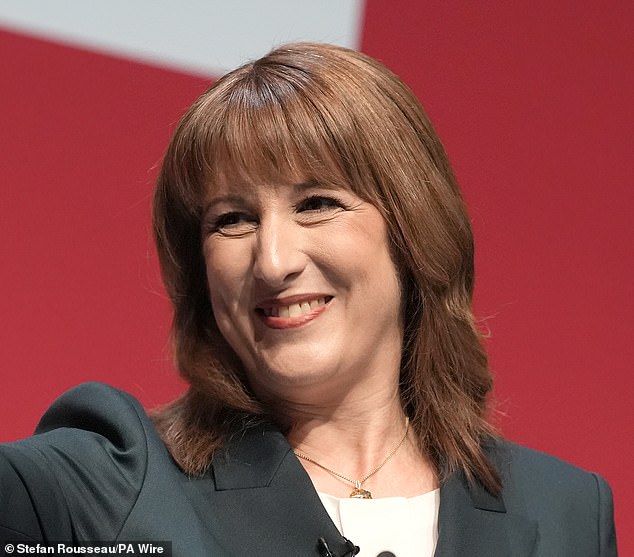Do not, Rachel Reeves, hit the housing market if you want the economy to keep growing. And if you are silly enough to do so, you may well end up with less revenue anyway.
One of the ideas being mooted in the Treasury is that the Chancellor should try to raise more from wealthier people by lifting taxes on high-priced homes.
We know she is desperate for cash, and is looking for an extra £30 billion in the Budget in higher taxation and/or spending cuts to balance the books.
Property is clearly in her line of fire. Whether it be higher rates on pricier homes, a rise in stamp duty, or another wheeze the clever clogs advising her dream up, we can already see what’s happening to the market.
The upper end is gummed up. Expensive properties are not selling, or, if they do, buyers can negotiate a big discount. As far as the wider market goes, transactions are off a bit and prices seem to be creeping up by about 2 per cent year-on-year. But if you look at London, the picture is very different.
A record number of homes are on the market. Transactions are down a third. Some 80 per cent of prime homes sold for less than their asking price, with an average discount of 9 per cent.

Desperate: One of the ideas being mooted in the Treasury is that Rachel Reeves should try to raise more from wealthier people by lifting taxes on high-priced homes
As a result, in central London the top-end selling prices are down 3.6 per cent on a year ago.
All this was happening before rumours of yet higher taxation took hold, and seems mostly to be a reaction to the departure of non-doms, following the tax and residency legislation changes brought in this year. The anecdotal evidence is that wealthy UK families are taking advantage of the softer market, buying in prosperous areas of outer London, such as Chiswick, Putney and Richmond.
The jury is out as far as the overall tax impact of the exodus of non-doms is concerned. But as far as the London housing market is concerned the evidence is pretty clear.
So the questions that now arise are whether what has been happening in prime central London is a prelude to something much bigger taking place across the country, and, if so, what does that do to the economy.
The starting point is that the number of non-doms is far less than that of reasonably wealthy UK tax-domiciled people.
There were about 75,000 of the first group before the tax changes took hold. By contrast, there are 6.7 million people in the richest 10 per cent of households, and they each had an average wealth of over £1.2 million when the Office for National Statistics last did a tally in 2022.
Only half that wealth is in the property Reeves has her eye on, but that is a lot of people – not only vastly more than the figure for non-doms, but also affecting much more of the country than posh central London.
It’s plausible – let’s see what she does – that she hits all homes worth more than £1 million with an additional tax, thereby depressing the entire country’s top-end property market.
What might that do to the wider economy? The housing market is one of the key drivers of consumer confidence, alongside incomes and employment levels. It’s a relationship that works both ways. If people have a rising income and are secure in their job they feel able to buy a more expensive home. But solid house prices also encourage homeowners to spend more on day-to-day outgoings.
It’s called the wealth effect. They feel wealthier so are more relaxed about extra luxuries. And a vibrant housing market drives other spending, because when people move they redecorate, buy furniture and consumer durables and so on. And inevitably the reverse applies.
Housing booms are socially destructive because they price younger people out of decent homes. No one should want that.
But slumps are damaging too, plunging recent purchasers into negative equity and depressing the entire economy.
Right now the market is fragile. So, Chancellor: do not mess with it. If you engineer a housing crash you will end up with less tax revenue, not more.
DIY INVESTING PLATFORMS

AJ Bell

AJ Bell
Easy investing and ready-made portfolios

Hargreaves Lansdown

Hargreaves Lansdown
Free fund dealing and investment ideas

interactive investor

interactive investor
Flat-fee investing from £4.99 per month

InvestEngine

InvestEngine
Account and trading fee-free ETF investing
Trading 212
Trading 212
Free share dealing and no account fee
Affiliate links: If you take out a product This is Money may earn a commission. These deals are chosen by our editorial team, as we think they are worth highlighting. This does not affect our editorial independence.
This article was originally published by a www.dailymail.co.uk . Read the Original article here. .

